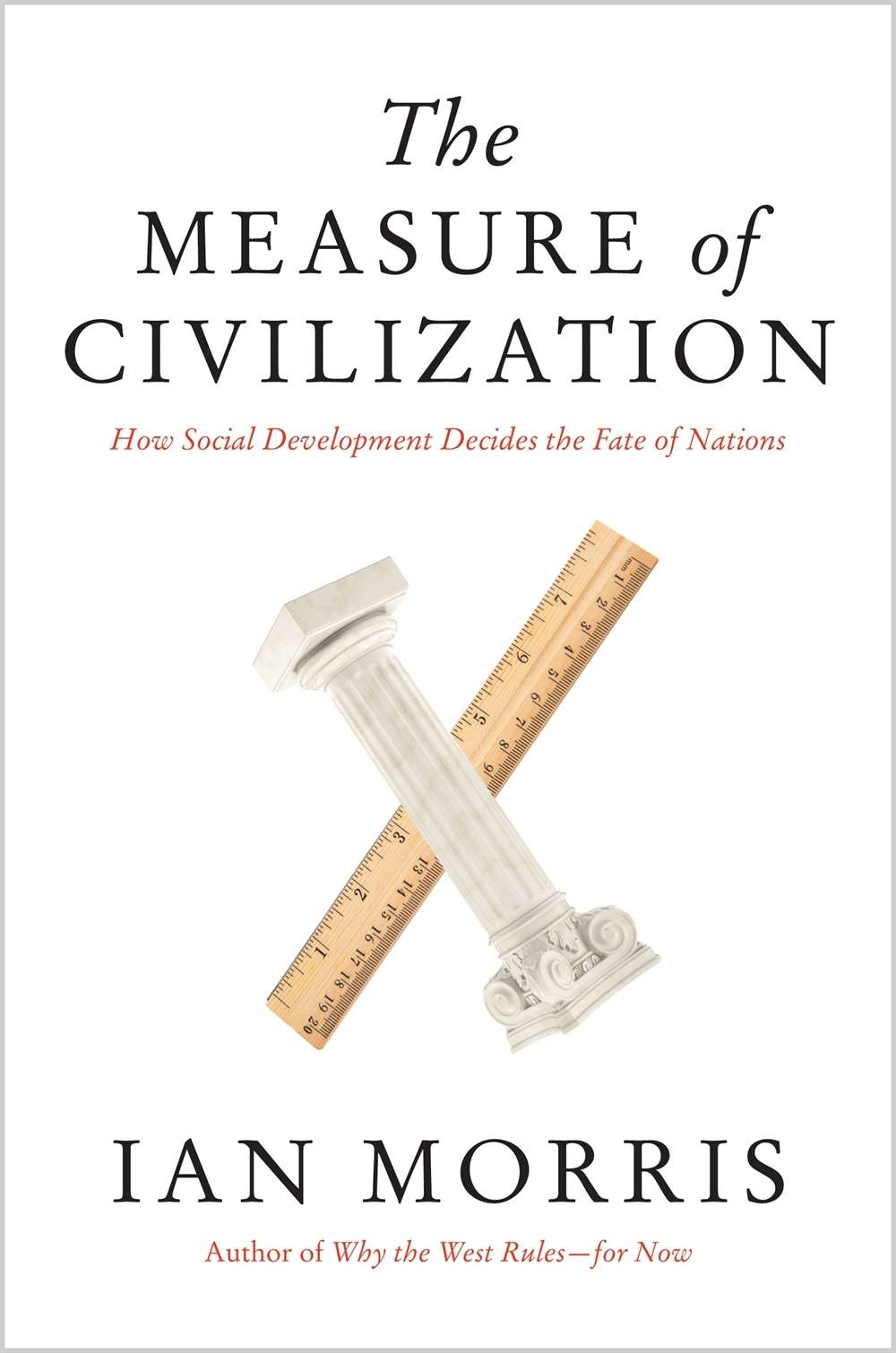The Measure of Civilization
How Social Development Decides the Fate of Nations

Editorial Princeton
Fecha de edición febrero 2014 · Edición nº 1
Idioma inglés
EAN 9780691160863
400 páginas
Libro
encuadernado en tapa blanda
Resumen del libro
In the last thirty years, there have been fierce debates over how civilizations develop and why the West became so powerful. The Measure of Civilization presents a brand-new way of investigating these questions and provides new tools for assessing the long-term growth of societies. Using a groundbreaking numerical index of social development that compares societies in different times and places, award-winning author Ian Morris sets forth a sweeping examination of Eastern and Western development across 15,000 years since the end of the last ice age. He offers surprising conclusions about when and why the West came to dominate the world and fresh perspectives for thinking about the twenty-first century.
Adapting the United Nations' approach for measuring human development, Morris's index breaks social development into four traits--energy capture per capita, organization, information technology, and war-making capacity--and he uses archaeological, historical, and current government data to quantify patterns. Morris reveals that for 90 percent of the time since the last ice age, the world's most advanced region has been at the western end of Eurasia, but contrary to what many historians once believed, there were roughly 1,200 years--from about 550 to 1750 CE--when an East Asian region was more advanced. Only in the late eighteenth century CE, when northwest Europeans tapped into the energy trapped in fossil fuels, did the West leap ahead.
Resolving some of the biggest debates in global history, The Measure of Civilization puts forth innovative tools for determining past, present, and future economic and social trends.
Biografía del autor
p b Ian Morris /b es doctor en Historia por Cambridge y profesor de Historia del Mundo, Arqueología y Cultura Clásica en la Universidad de Stanford, donde ha sido director del Departamento de Cultura Clásica, director del Instituto de Historia de las Ciencias Sociales y del Centro de Arqueología, así como decano adjunto de la Facultad de Humanidades y Ciencias. En 2009 fue galardonado con el Dean's Award por la excelencia de sus clases. Ha dirigido excavaciones arqueológicas en Gran Bretaña, Grecia e Italia.<br> p <br> p Morris ha publicado diez libros entre los que destacan i ¿Por qué manda Occidente por ahora? /i (premio Pen de No Ficción y fenómeno de ventas mundial), i Cazadores, campesinos y carbón y Guerra, ¿para qué sirve?, /i todos en Ático de los Libros. Ha sido galardonado con premios de la Fundación Guggenheim, la Fundación Mellon, la National Geographic Society y el National Endowment for the Humanities y es titular de la cátedra Jean y Rebecca Willard de Clásicos.<br>








